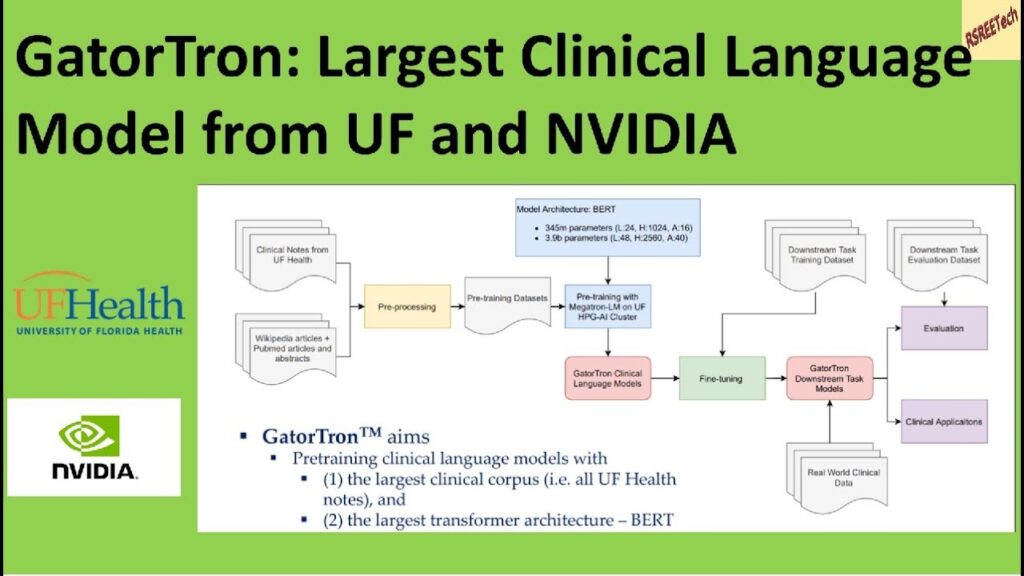
Florida, USA: A team of 19 researchers from NVIDIA and the University of Florida have developed a new AI tool GatorTronGPT that can generate doctors’ notes so well that two physicians couldn’t tell the difference, according to an early study from both groups. The team’s findings were published in the Nature journal NPJ Digital Medicine which opened the door for AI to support health care workers with ground-breaking efficiencies. In this proof-of-concept study, physicians reviewed patient notes — some written by actual medical doctors while others were created by the new AI program — and the physicians identified the correct author only 49% of the time.
The researchers trained supercomputers to generate medical records based on a new model, GatorTronGPT that functions similarly to ChatGPT. The free versions of GatorTron™ models have more than 430,000 downloads from Hugging Face, an open-source AI website. GatorTron™ models are the site’s only models available for clinical research, according to the article’s lead author Yonghui Wu from the UF College of Medicine’s department of health outcomes and biomedical informatics.
For this research, Wu and his colleagues developed a large language model that allows computers to mimic natural human language. These models work well with standard writing or conversations, but medical records bring additional hurdles, such as needing to protect patients’ privacy and being highly technical. Digital medical records cannot be Googled or shared on Wikipedia. To overcome these obstacles, the researchers stripped UF Health medical records of identifying information from 2 million patients while keeping 82 billion useful medical words. Combining this set with another dataset of 195 billion words, they trained the GatorTronGPT model to analyze the medical data with GPT-3 architecture, or Generative Pre-trained Transformer, a form of neutral network architecture. That allowed GatorTronGPT to write clinical text similar to medical doctors’ notes.

